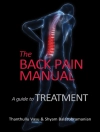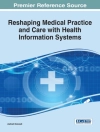‘Reflecting the interrelationship with diverse fields, topics range from health psychology to health economics, ethics, and biostatistics. Some articles desribe underlying biostatistical concepts-from measures of central tendency, to kappa, to the Pearson correlation coefficient. Others explain public health research design, including community studies, and address the value and limitations of case reports and case series. Of particular note is a decision chart to help in choosing appropriate research designs. Health students and faculty will desire an online version of this gem!’
—CHOICE
Issues of health and disease are central to human life, so an understanding of the science of epidemiology—the study of the patterns of disease and injury in human populations—is relevant to everyone. Many areas of study are directly concerned with epidemiological issues, including medicine and nursing, public policy, health administration, and the social and behavioral sciences.
The Encyclopedia of Epidemiology presents state-of-the-art information from the field of epidemiology in a less technical and accessible style and format. With more than 600 entries, no single reference provides as comprehensive a resource in as focused and appropriate manner. The entries cover every major facet of epidemiology, from risk ratios to case-control studies to mediating and moderating variables, and much more. Relevant topics from related fields such as biostatistics and health economics are also included.
Key Features
- Presents a Reader′s Guide to organize entries around themes or specific topics and easily guide users to areas of interest
- Offers cross-referenced terms, a brief listing of Further Readings, and stable Web site URLs following most entries
- Provides appendices that include a general bibliography to build on Further Readings, an annotated list of organizations relevant to epidemiology, the standard statistical tables used in epidemiology (t-distribution, F-table, normal [z] distribution, chi-square, etc.), and flow charts to aid researchers in selecting an appropriate study design
This resource is a must-have for students, practitioners, researchers, and the informed public who want to know more about health and disease and related topics.
Despre autor
Sarah E. Boslaugh, Ph.D., M.P.H., has over 20 years of experience in statistical analysis, grant writing, and teaching; her employers and clients have included the New York City Public Schools, Montefiore Medical Center, Kennesaw State University, Washington University School of Medicine, and Saint Louis University. She served as editor-in-chief for the Encyclopedia of Epidemiology (SAGE, 2007), and has published three additional books: An Intermediate Guide to SPSS Programming: Using Syntax for Data Management (SAGE, 2004), Secondary Data Sources for Public Health: A Practical Guide (Cambridge University Press, 2007), and Statistics in a Nutshell (O’Reilly, 2nd ed., 2012).Boslaugh received her Ph.D. in measurement and evaluation from the City University of New York Graduate Center and her M.P.H. from Saint Louis University. She is currently a technical writer and editor at Saint Louis University in Missouri. She specializes in data-based articles and explaining statistical principles to the general public. Her research interests include comparative health care delivery systems, quality of life measurement, and gender and sexuality issues in health care delivery. In her spare time, she reviews films and books for Pop Matters (http://www.popmatters.com) and Playback St. Louis (http://www.playbackstl.com).












